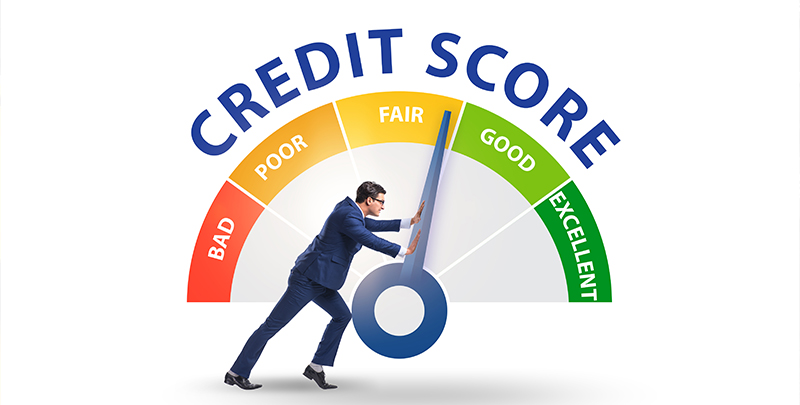- Open digital A/C
Explore 250+ banking services on Axis Mobile App
Scan to Download
- Current Account
- Pay
- Collect
- Trade
Services
Solution for Exporters
- Debt & Working Capital
24x7 Loans
For MSMEs with turnover up to ₹30 Cr
- Treasury
- Transact Digitally
- Home
- Blogs
- Credit Score Guide
- What Is Cibil Score

Credit Score
CIBIL Rating: What Is CIBIL Score, Meaning & Full Form
Are you considering a loan for your next big purchase? The ease of your loan approval and the interest rate you get depend on a three-digit number: your CIBIL score. If you're puzzling over questions like "What is CIBIL score?" or "What is CIBIL rating?", you're in the right place. Let's unfold this concept to understand how it impacts your loan prospects.
CIBIL score meaning
CIBIL score is central to understanding your financial credibility in the eyes of lenders. It is a number, usually between 300 and 900, representing your creditworthiness based on your credit history. Your financial behaviour from the past, like repayment habits, credit card usage and how you've managed loans, determines your CIBIL Score.
Breaking down CIBIL score ranges
- 300-549: Regarded as a poor score, it indicates a high risk to lenders. It suggests past financial struggles like defaults or delayed payments.
- 550-699: A score in this bracket is average, depicting some financial missteps but potential for improvement.
- 700-749:Regarded as a good score, it reflects responsible credit behaviour. This increases your loan approval chances.
- 750-900: This score is excellent and demonstrates a strong history of timely repayments and responsible credit management. It significantly enhances your loan eligibility and could lead to better interest rates.
What is the full form of CIBIL?
The full form of CIBIL in banking is Credit Information Bureau (India) Limited. As a prominent credit information company in India, CIBIL plays a crucial role in maintaining credit records for individuals and businesses. It provides Credit Information Reports (CIRs) and credit scores, which are essential tools for lenders to assess your creditworthiness.
Also Read: What is credit score? What does it say about you?
Other key credit agencies
Apart from CIBIL, there are other significant players in the credit rating industry in India, including:
1.Equifax: A global data firm providing detailed credit reports and risk analysis.
2.Experian: Known for comprehensive credit insights and advanced analytics.
3.CRIF High Mark: Offers wide-ranging credit reports and specialises in credit scoring and decision management.
Why does a CIBIL score matter?
A CIBIL score is crucial when applying for loans or Credit Cards. For instance, if you're applying for a Home Loan, a high CIBIL score can increase your chances of approval and possibly fetch you a lower interest rate. Conversely, a low score may lead to loan rejection or higher interest rates. This score reflects your credit history and repayment behaviour, signalling to lenders how responsibly you manage credit.
How to improve your CIBIL Score
Improving your CIBIL Score involves strategic financial habits, such as -
1. Ensure timely payment of bills and EMIs; even a single missed payment can negatively impact your score.
2. Maintain a healthy credit utilisation ratio - ideally, use less than 30% of your available credit limit. This shows you're not overly reliant on credit.
3. Having a balanced mix of secured (like Home Loans) and unsecured (like Credit Cards) debts is beneficial. Regularly monitor your credit report for inaccuracies and rectify them promptly.
4. Avoid applying for multiple credit lines simultaneously, as each application can slightly lower your score.
These steps, when practised consistently, can gradually enhance your CIBIL score.
How do credit scores work and how are they calculated?
The calculation of a credit score, such as the CIBIL score, involves several key components, each contributing to the final score:
- Payment history (35%): This is the most influential factor. It reflects whether you've made your credit payments on time. Late payments can significantly lower your score.
- Credit utilisation (30%): This measures the amount of credit you use relative to your total credit limit. Lenders view lower utilisation rates as more favourable.
- Length of credit history (15%): A longer credit history provides more data for scoring, potentially boosting your score.
- Credit mix (10%): A diverse mix of credit types, such as Credit Cards, Home Loans and Personal Loans, can positively affect your score.
- New credit inquiries (10%): Applying for multiple credit lines in a short span can lower your score, as it may signal credit risk.
Conclusion
A strong CIBIL score is crucial for favourable loan terms and is a key consideration for lenders like Axis Bank. This score determines your loan eligibility and influences the terms offered. Axis Bank's 24x7 Personal Loan is ideal for those with high credit scores. The bank provides loan amounts of up to ₹25 lakh, at competitive interest rates and flexible repayment tenures of up to 60 months.
Additionally, Axis Bank offers a free CIBIL score check service, allowing you to easily monitor your credit health. Regularly checking and maintaining a good CIBIL score can lead to a financially stable and prosperous future.
Disclaimer: This article is for information purpose only. The views expressed in this article are personal and do not necessarily constitute the views of Axis Bank Ltd. and its employees. Axis Bank Ltd. and/or the author shall not be responsible for any direct / indirect loss or liability incurred by the reader for taking any financial decisions based on the contents and information. Please consult your financial advisor before making any financial decision.
Table of Contents
Related Services
Learning Hub
Look through our knowledge section for helpful blogs and articles.
How to determine which Savings Account is right for you?
Thornton T. Munger, a notable research expert in forestry for the U.S...
Tips to save more in 2025: 5 best savings tips
As we step into 2025, you should reflect on your financial goals and make a resolution to save more.
How to open a Jan Dhan Yojana Account? - Step-by-step guide
Jan Dhan Account is a part of Pradhan Mantri Jan-Dhan Yojana (PMJDY)...
Seamlessly update your Bank Account address: A step-by-step guide
When you change your address, whether due to a move or personal reasons...














